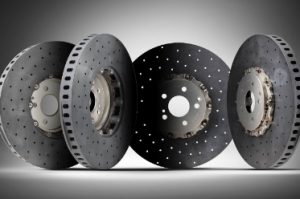Confidence in manufacturing sector takes a hit after Brexit vote

A NEW report out today shows confidence in the North West manufacturing sector has been damaged last month’s Brexit vote.
The study from the manufacturers’ organisation EEF and BDO LLP says the region has been left trailing behind the rest of the UK, coming in second from last in the confidence stakes.
The annual report – Regional Manufacturing Outlook – draws upon survey data and the latest ONS figures to provide a longer-term picture of the health of UK manufacturing.
It shows that the North West now boasts almost 14,400 manufacturing firms – up 3.8% year-on-year.
Manufacturing now accounts for 15.8% of the region’s total output – significantly above the UK average – with pharmaceuticals, transport equipment and food and drink the biggest sectors.
The number of manufacturing jobs in the region has increased by 3.3% between 2010 and 2016. 346,000 people are now employed by manufacturers across the region – 9.6% of the region’s total workforce.
The North West also continues to enjoy a strong export record. It accounts for 8.8% of the UK’s manufactured exports – the fourth biggest contribution by a single region. Some 47% of the region’s exports are destined for the EU, roughly in line with the national average.
But despite these positives, manufacturers in the North West are not immune to post-referendum jitters. Just prior to the vote for Brexit, the region scored 6.3 out of a possible 10 points for confidence – since the vote this score has dropped to 5 out of 10.
The report shows that the region has slipped down the UK rankings for business confidence from fifth place last year to eighth place – second to last – today.
Before the referendum result was known, local manufacturers were optimistic about shaking off a weak start to the year, expecting both output and demand to improve this quarter (Q3 2016).
Now, 59% are concerned about weaker demand prospects and the attitude of their parent company (28%) – higher than elsewhere in the UK. However, in line with the national trend, exchange rate volatility is their top concern (78%).
Following the vote, a quarter of local manufacturers (25%) are as yet unable to identify any business opportunities flowing from the Brexit vote – higher than in any other region. At the same time, they are the most likely to immediately review their plans for investment outside of the UK.
Whether opportunity ultimately outweighs risk remains to be seen. But, in these unprecedented times, what is clear is that next year’s confidence rankings could end up looking very different again.
Steve Warren, North West Region director at EEF, said: “Despite some challenging times, manufacturing in our region remains a force to be reckoned with. This last year shows firms getting back into their stride. But the referendum outcome provided a jolt and it’s clear that we’re now on a new path with fresh challenges ahead.
“Exchange rate volatility, political uncertainty and the danger of increased costs are already causing concern in the region and business confidence is in short supply.
“But our sector is nothing if not dynamic, determined and resilient. With a solid business environment, supportive policies and the right outcome from Brexit negotiations, manufacturers in this region should be able to overcome the risks, reap future growth rewards and get their business confidence back on track.”
Don Bancroft, partner and head of manufacturing at BDO in the North West, said: “Businesses must remain engaged and adaptable to continue to trade profitably through the changes in the short term and make the most of the opportunities they may offer.
“The lack of a clear strategy for the manufacturing sector over recent years has been of huge concern and it is encouraging to see Theresa May’s promise of a proper industrial strategy.
“We would like to see the Government match manufacturers’ long-term outlook by developing a 15-20 year industrial policy that avoids the disruptions of the political cycle.”








